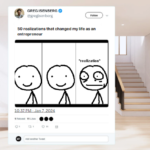- AI models pose as influencers, crafted by agencies into eerily lifelike spokespeople.
- These virtual shills score deals at lower costs than human creators.
- Though budgets tempt brands, unease grows over impersonating people without disclosure.
Artificially intelligent models are infiltrating influencer marketing, posing as uncannily realistic virtual humans. Agencies craft characters like Aitana Lopez and Lil Miquela, scoring beauty and fashion deals for nonexistent product spokespeople.
Lower cost than humans
Backers tout this computer-generated approach as more affordable and higher-reach. Analyses show AI influencer ads can achieve 11X more impressions at almost 90% lower cost-per-view versus humans. As brands eye savings, avatar counts grow, worrying human creators.

Easy to believe they are real people
Some influencers warn realistic CGI dupes may mislead audiences into believing they follow actual people.
However, the ethics around impersonating real identities without disclosure sparks unease even at AI firms. “We unintentionally created a beautiful monster,” said one executive.

Watch out: a virtual humans
Backlash mounts over deception and job loss fears. However, pragmatic influencers also utilize tech to streamline content production. The rise of “virtual humans” forces social platforms to weigh risks around integrity and automation’s impact on livelihoods.
Guidelines strive to balance innovation aims with transparency.









